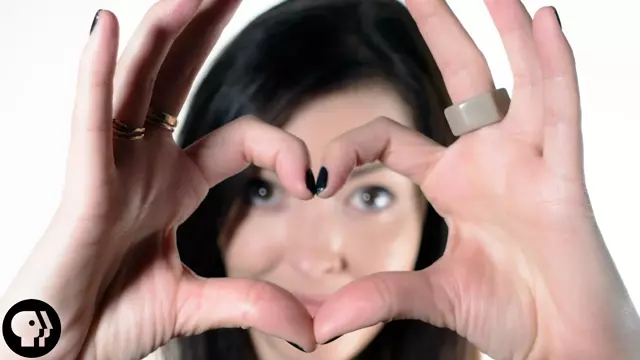2015-11-26
[public] 258K views, 3.57K likes, 91.0 dislikes audio only
4KNEW! When Gratitude Goes Wrong: /youtube/video/ZlGZZAsflwc
THANK YOU for watching BrainCraft! I love you guys and really appreciate your support.
My Twitter https://twitter.com/nessyhill | Instagram https://instagram.com/nessyhill
Subscribe to BrainCraft! http://ow.ly/rt5IE
BrainCraft is created and hosted by Vanessa Hill and brought to you by PBS Digital Studios. Talking psychology, neuroscience & why we act the way we do.
Sound design: Joel Werner (http://joelwerner.com)
Producer: Ella Colley
Keep in touch, won't you?
Snapchat: nessyhill
Twitter https://twitter.com/nessyhill
Instagram https://instagram.com/nessyhill
Tumblr http://braincraft.tumblr.com
Facebook https://www.facebook.com/Braincraft
More videos!
Why Do We Love Sugar: /youtube/video/USNWXPfdc9g
Can You be Addicted to Sugar? /youtube/video/1aLCwDT-X6c
REFERENCES
Studies mentioned:
Fox, G. R., Kaplan, J., Damasio, H., & Damasio, A. (2015). Neural correlates of gratitude. Frontiers in psychology, 6. http://www.ncbi.nlm.nih.gov/pmc/articles/PMC4588123/
Seligman, M. E., Steen, T. A., Park, N., & Peterson, C. (2005). Positive psychology progress: empirical validation of interventions. American psychologist, 60(5), 410. http://www.positiveinsights.co.uk/articles/EMPIRICAL_RESULT_OF_INTERVENTIONS.pdf (pp. 418)
Mills, P. J., Redwine, L., Wilson, K., Pung, M. A., Chinh, K., Greenberg, B. H., ... & Chopra, D. (2015). The role of gratitude in spiritual well-being in asymptomatic heart failure patients. Spirituality in Clinical Practice, 2(1), 5. http://www.apa.org/pubs/journals/releases/scp-0000050.pdf
Algoe, S. B., & Way, B. M. (2014). Evidence for a role of the oxytocin system, indexed by genetic variation in CD38, in the social bonding effects of expressed gratitude. Social cognitive and affective neuroscience, 9(12), 1855-1861. http://scan.oxfordjournals.org/content/early/2014/01/03/scan.nst182.full.pdf+html
More:
Emmons, R. A., & McCullough, M. E. (2004). The psychology of gratitude. Oxford University Press. https://books.google.com/books?hl=en&lr=&id=Qz4nhZ3ZMmgC&oi=fnd&pg=PR5&dq=gratitude+psychology&ots=CGIak-zb-a&sig=s_NaAsk1DoqgEn0ZKGP6P5vVIe4#v=onepage&q=gratitude%20psychology&f=false
Bartlett, M. Y., & DeSteno, D. (2006). Gratitude and prosocial behavior helping when it costs you. Psychological science, 17(4), 319-325. http://greatergood.berkeley.edu/images/application_uploads/Bartlett-Gratitude+ProsocialBehavior.pdf
Lopez, S. J., & Snyder, C. R. (2009). Oxford handbook of positive psychology. Oxford University Press, USA. https://books.google.com/books?hl=en&lr=&id=2Cr5rP8jOnsC&oi=fnd&pg=PA459&dq=gratitude+psychology&ots=ekG7cxxx1R&sig=C3uuawsUatl5mpzmiM40J4SdFZc#v=onepage&q=gratitude%20psychology&f=false
/youtube/video/ZlGZZAsflwc
http://braincraft.tv/twitter
/youtube/video/_sokh9e2WGc?t=0
/youtube/video/_sokh9e2WGc?t=26
/youtube/video/_sokh9e2WGc?t=41
/youtube/video/_sokh9e2WGc?t=57
/youtube/video/_sokh9e2WGc?t=119
/youtube/video/_sokh9e2WGc?t=130
/youtube/video/_sokh9e2WGc?t=161
/youtube/video/ZlGZZAsflwc

